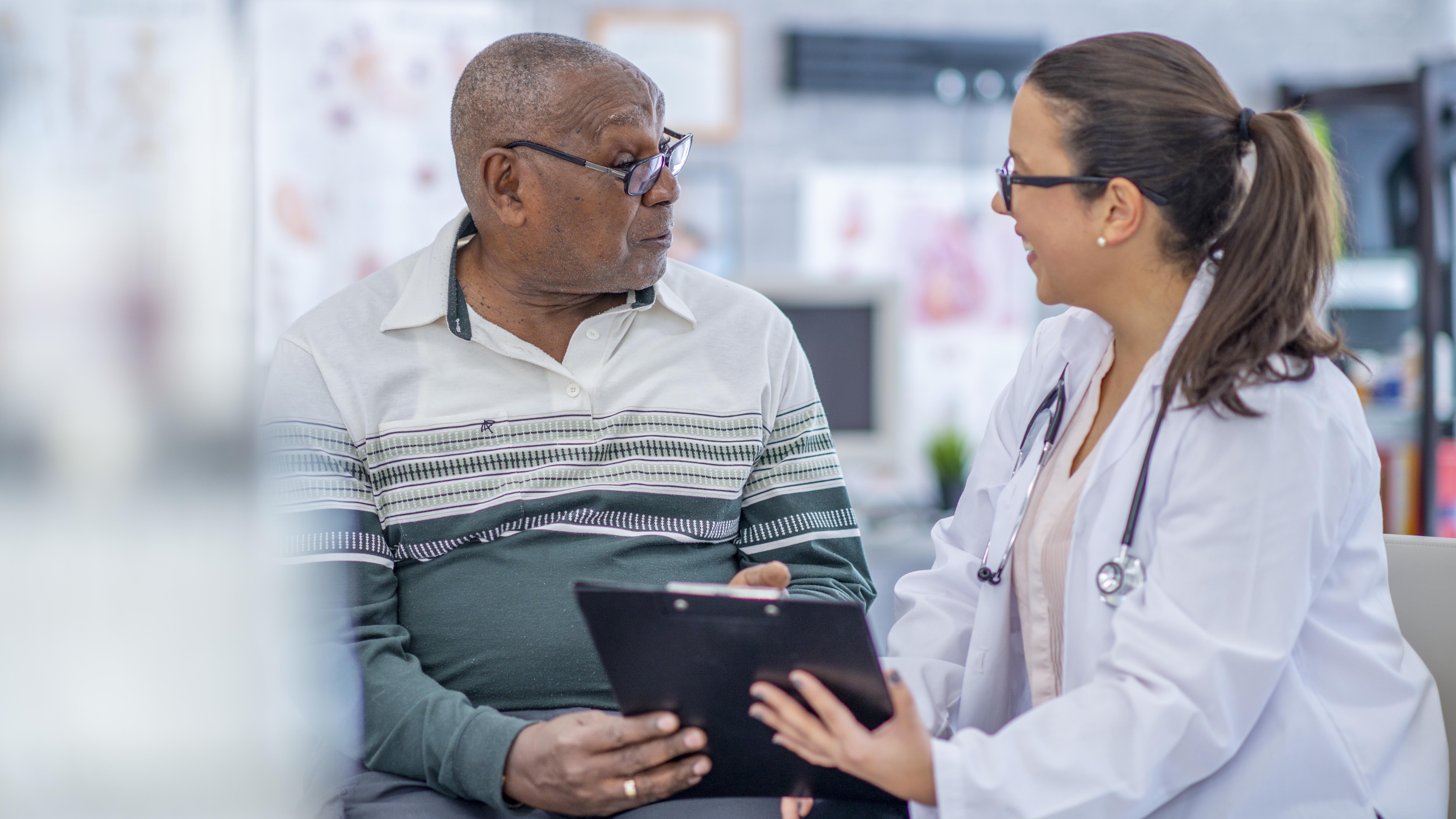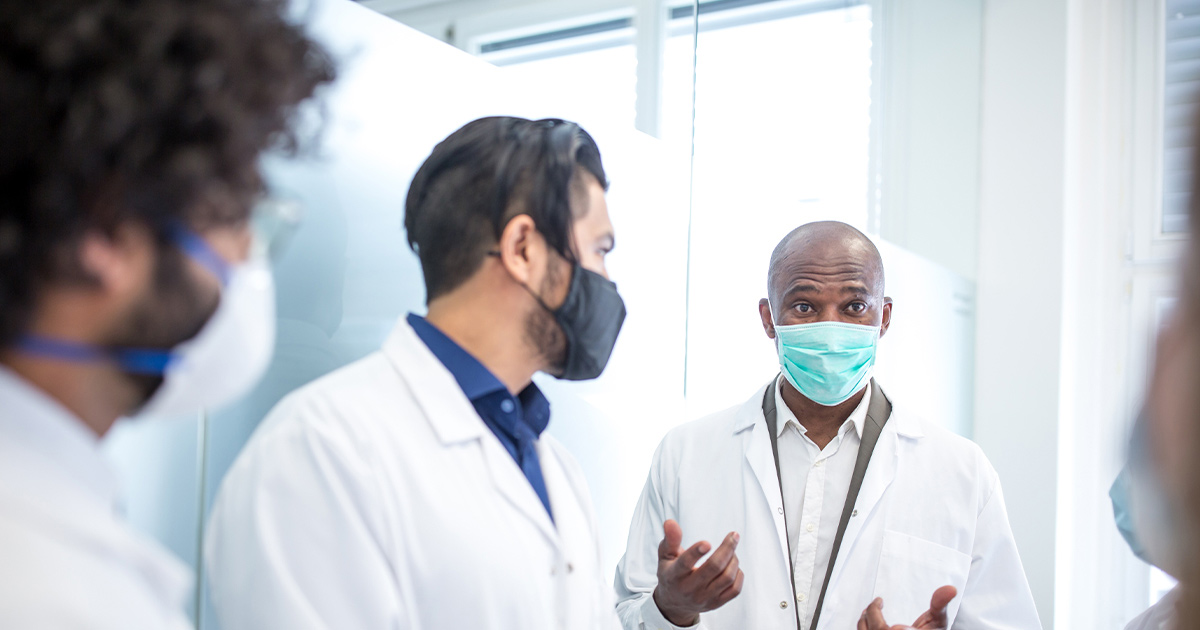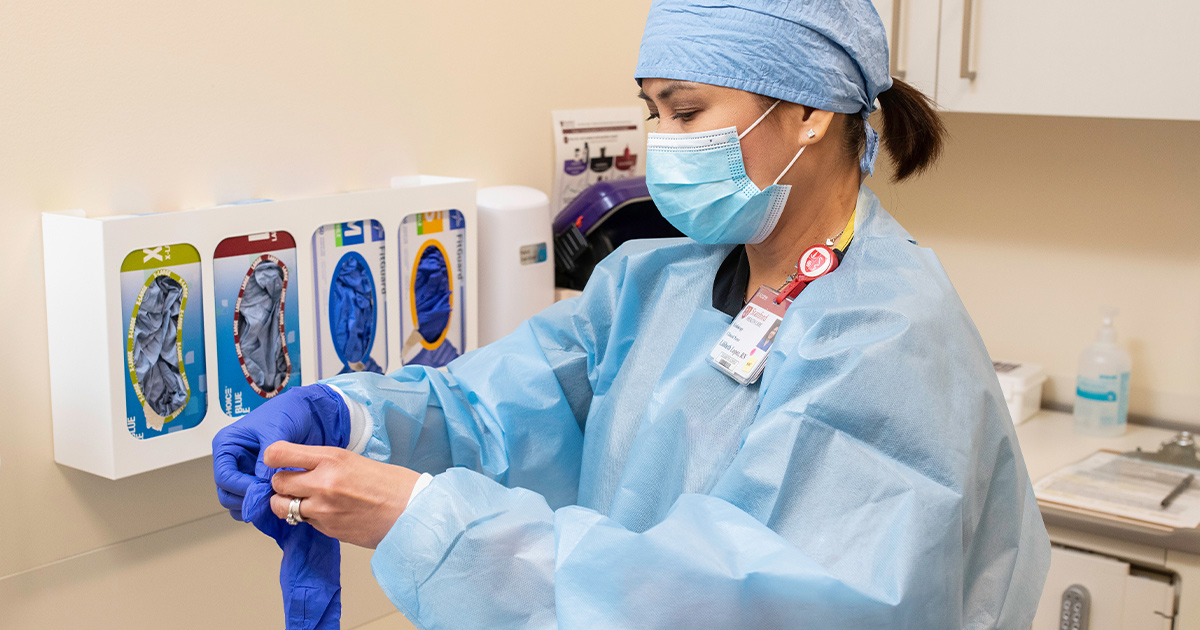General Endoscopy
Part of Digestive Health Center

Leaders in General Endoscopy Services
Stanford gastroenterologists use endoscopy procedures to diagnose, screen for, and treat a wide range of gastrointestinal (GI) conditions. Endoscopic procedures are minimally invasive and performed with sedation, which means the process is comfortable for you. Every year, our specialists perform more than 10,000 endoscopies, including colonoscopies, upper endoscopies and more complicated procedures.
What We Offer You for General Endoscopic Services
- Specialized expertise in colonoscopies and endoscopic techniques. We’re a regional referral center for cancer, reflux, intestinal diseases, and other GI disorders. Go to Conditions Treated
- Advanced endoscopic services for complex digestive tract conditions, including bile duct and pancreas procedures, advanced colon and stomach procedures, and double-balloon enteroscopy, which require considerable expertise. Go to Endoscopic Services
- Team-based approach coordinating office visits, procedures, nutrition, and genetic evaluations to meet your precise needs. Go to Your Care Team
- Precise screening services, such as colonoscopy for people whose procedures could not be completed at other centers due to complex anatomy. Go to Endoscopic Services
- Service amenities to maximize comfort and healing, including private patient areas, plus a patient navigator to guide you through the process. Go to Service Amenities
- Ease of access to specialists at the Digestive Health Center in Redwood City and multiple other locations in the East and South Bay, and advanced endoscopic services in Palo Alto. Go to Accessing Care
If digestive problems keep you from enjoying life, the endoscopy experts at Stanford can help. Whether you are referred directly for a screening colonoscopy or to evaluate complex symptoms, our specialists will work diligently with you to determine the place of endoscopy in your care. You doctor may use an endoscope, a flexible tube with a light, camera, and special tools, to diagnose digestive problems. We may also use this approach to treat conditions. We offer colonoscopies, upper endoscopies, sigmoidoscopies, as well as the entire range of more complex procedures.
In our Endoscopy Suites, you receive compassionate care in a discreet setting designed with your privacy needs in mind. At check-in, we escort you to a pre-procedure area. Family members can monitor your procedure's progress on status boards, and then join you in the recovery room afterwards.
When needed, we partner with other Stanford experts at the Digestive Health Center and beyond, to customize your treatment plan. We address GI conditions and symptoms, so your body can heal, and you can feel better.
Our endoscopy experts are an integral part of the Digestive Health Center. We use endoscopic techniques to deliver care for all of the center’s specialty clinics as well as to those referred directly to endoscopy.
An endoscopic procedure can often pinpoint the cause of your GI problem. This information helps us tailor a treatment plan for your unique needs. We also use endoscopy to directly treat conditions of the GI tract.
Conditions we treat include:
Getting the correct diagnosis is key to providing effective treatment. Your care typically begins with a consultation with a digestive health expert. If you need an endoscopic procedure, your Stanford team has the advanced training needed to perform routine and complex diagnostic and therapeutic endoscopic procedures with minimal disruption to your daily life.
INNOVATION HIGHLIGHTS
Our doctors are dedicated to providing safe, high-level care using the most advanced endoscopic imaging technology. We offer personalized care including leading-edge approaches available at only select centers across the country.
- Quality assurance: We benchmark our outcomes to improve services and ensure optimum care.
- Research and clinical trials: Our doctors are redefining national standards of endoscopic care for GI disorders through ongoing research, clinical trials, and the development of new devices and therapies.
- Advanced technology: Doctors and medical centers refer patients to us for our ability to help people with complex problems and challenging anatomy. For instance, we use specialized endoscopes that can make difficult turns in even the most complicated anatomy.
Colonoscopy and Screening Services
An endoscopic screening checks for potential signs of cancer in someone who has no GI symptoms or history of cancer. It is one of the best ways to prevent cancer or detect it early when it is most treatable. Through the endoscope, our doctors identify and remove or biopsy lesions.
Common screenings we offer include:
- Screening colonoscopy for polyps and colon cancer, including screening in people with a family history of colon cancer or a personal history of colon polyps.
- Upper endoscopy to screen people with GERD for Barrett's esophagus or people at risk for stomach, esophagus, or small bowel cancer.
In addition to offering these tests for screening, we commonly use endoscopies and colonoscopies to diagnose conditions in people with symptoms such as rectal bleeding.
Diagnostic and Therapeutic Services
The Digestive Health Center in Redwood City, and our other locations around the Bay, offer general endoscopic procedures for diagnosing and treating most GI problems. Our team-centric approach brings together leading specialists in one centralized location. We work collaboratively to share expertise and create the best care plan for you.
Each of our endoscopic procedures can be used to diagnose a problem, as well as potentially treat it, using the least invasive approach possible. These procedures include:
A diagnostic colonoscopy takes place if you have GI problems or an abnormal screening result from another test, such as a stool test. This procedure checks the entire large intestine for precancerous intestinal polyps that can be removed via endoscopy during the same procedure. It also helps to detect early colorectal cancer when it is most treatable.
This diagnostic procedure for colorectal cancer enables a doctor to check the lower part of the large intestine and rectum for polyps or cancerous lesions.
Also called esophagogastroduodenoscopy, or EGD, this procedure allows a doctor to examine the inside of the esophagus, stomach, and duodenum. The doctor can remove small tissue samples and perform biopsies. They also perform treatments using EGD, such as therapies for people who have difficulty swallowing.
With this procedure, you swallow a vitamin-sized capsule that contains a tiny wireless camera. As the capsule travels through the digestive tract, it sends pictures to a wearable recording device.
Our Advanced Endoscopy Program in Palo Alto offers specialized procedures, including bile duct and pancreas procedures, endoscopic ultrasound, double-balloon enteroscopy, and advanced procedures at the frontier of endoscopy and surgery.
For those medically unable to undergo a colonoscopy, or in the event a colonoscopy remains incomplete, we partner with specialists in our Radiology department to perform a computed tomography (CT) colonography. Whenever possible, we will coordinate this scan for the same-day.
Clinical Trials
We have a robust clinical trial program aimed at improving diagnosis and treatment of GI disorders. These research studies evaluate novel medical approaches, devices, medications, and other treatments.
As a Stanford Health Care patient, you may be eligible to participate in open clinical trials. These trials refer to studies currently recruiting participants or that my recruit participants in the near future. Closed trials are not currently enrolling, but similar studies may open in the future.
Ask your doctor or clinical trials coordinator about available trials that may be additional options for your care.
Your Care Team
At Stanford, we bring together experts on your care team who have deep expertise in treating your specific condition. We understand that digestive problems affect everyone differently. We listen to your concerns to provide you with the most appropriate care.

Your Doctors
Gastroenterologist
Our gastroenterologists are dedicated to diagnosing, managing, and treating a range of common and complex digestive disorders. They will see you in your initial consultation and perform your endoscopy. Our gastroenterologists bring together the results of all tests, including endoscopy, to provide you with a diagnosis and treatment plan.
View All {0} Gastroenterologists »Hepatologist
Hepatologists are gastroenterologists who specialize in diagnosing and treating conditions that affect the liver. These liver specialists provide comprehensive care for your liver condition. As part of your care, they may perform upper endoscopy to screen for esophageal and gastric submucosal veins, or varices, in either the esophagus or stomach in people who have liver disease, liver failure, or cirrhosis.
View All {0} Hepatologists »Transplant Hepatologist
Transplant hepatologists have advanced training in managing advanced liver disease, including liver transplantation. These specialists may use endoscopy for conditions that can complicate liver transplants.
View All {0} Transplant Hepatologists »Stanford is an Academic Medical Center, which is a type of hospital setting where doctors teach the entire spectrum of medical education. Students range from beginning medical students to fully licensed and practicing doctors completing advanced sub-specialty training. Stanford Medicine is a partnership between Stanford University School of Medicine and Stanford Health Care. Since Stanford is a teaching hospital, you can expect to meet many providers and providers in training.
- Attending Physician: a doctor who supervises doctors in training or in medical school
- Fellow: a doctor doing postgraduate level work and specializing in care of patients with specific conditions
- Resident: a doctor who has graduated from medical school and is in training (also called “residency”) here at Stanford. A resident is also called an intern
- Medical Student: a student who is currently enrolled in medical school with the goal of becoming a doctor

Extended Care Team
Our nurse practitioners have received additional years of education and training to best help patients live healthier lives. These professionals work in close collaboration with your doctor or surgeon.
Endoscopy nurses assist doctors and monitor you before, during, and after an endoscopic procedure.
Endoscopy technicians assist doctors in all aspects of your endoscopic procedure.
Our scheduler works with you to arrange appointments with all necessary specialists and labs.
Interpreter Services offer free medical interpretation and translation for patients and physicians. Services include in-person and telephone interpretation, as well as video conferences.

Service Amenities
We understand that you might be nervous about having an endoscope, or flexible tube with a lighted camera, placed into the GI tract for diagnostic or treatment purposes. Our care team is dedicated to making the procedure as stress-free and comfortable as possible. After the procedure is finished, most people do not even remember it.
Your comfort and convenience are our top priority, which is why we listened to our patients when designing our endoscopy suites. We offer:
- Private waiting rooms for you and your loved ones
- Dedicated patient navigator to guide you and family members through the procedure, from diagnosis to recovery
- A more comfortable endoscopic approach using carbon dioxide gas instead of general air to view the esophagus, stomach, and intestines. You experience less discomfort and bloating during and after the procedure because you simply breathe out the carbon dioxide, instead of having to pass the air.
Accessing Care
The Endoscopy Suites at the Digestive Health Center in Redwood City were designed with your needs in mind. We offer discreet care in a comfortable setting. We also offer endoscopy services at our main campus in Palo Alto, as well as three other convenient locations throughout the Bay Area.
Frequently Asked Questions
For Referring Physicians
PHYSICIAN HELPLINE
Fax: 650-320-9443
Monday–Friday, 8 a.m.–5 p.m.
Stanford Health Care provides comprehensive services to refer and track patients, as well as the latest information and news for physicians and office staff. For help with all referral needs and questions, visit Referral Information.
You may also submit a web referral or complete a referral form and fax it to 650-320-9443 or email the Referral Center at ReferralCenter@stanfordhealthcare.org.


